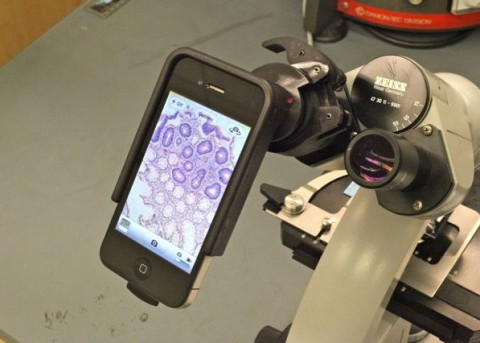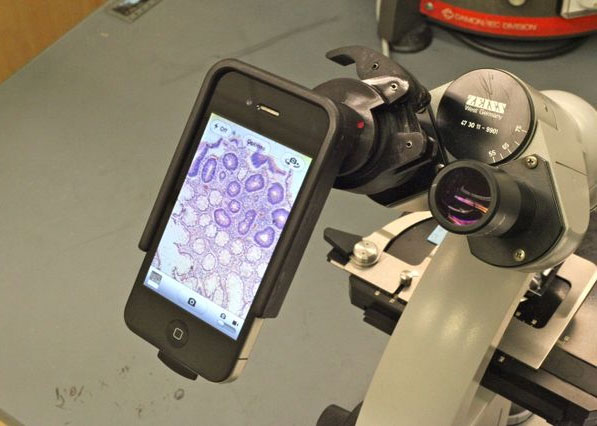 Revolutionizes Healthcare in Remote Settings
Revolutionizes Healthcare in Remote Settings
The integration of technology and medicine means that professionals seeking top jobs in the health care industry need to be both innovative and resilient. For instance, with a new cell phone technology that allows the camera feature of the device to be used as an imaging tool, a well-trained primary provider working in remote locations can use this specially designed cell phone apparatus to detect sub-wavelength objects like microscopic bacteria and viruses.
International health care workers have been on the cutting edge of mobile technology, working to provide better care for patients in remote settings. In satellite clinics, nurses and aid workers can now use cell phones and other mobile devices to conference with experts hundreds or even thousands of miles away. They can relay photos of triage procedures or challenging wound care cases to supporting physicians who can advise the caseworkers in the field.
This latest technological development uses a smartphone attachment that functions like a powerful microscope with the added advantage of being able to transmit the image to a consulting physician located miles away. The device is so sensitive that it can detect and capture the image of nanoparticles one-thousandth the width of a human hair.
For traveling nurses and other health professionals interested in the applications of technology in medicine, this smartphone invention opens many possibilities for providing a more effective continuum of care across clinical settings. Patients in developing nations and in remote areas where resources are limited will directly benefit from this technology that will speed up the time it takes to establish a diagnosis. In addition, a more holistic and effective diagnosis is possible.
This technology also has valuable application in home health settings in the United States. Using mobile medical devices in a patient’s home can ease the stress on the patient and their caretakers. Treating a patient at home is also generally more cost-effective and reduces the risk of exposure to nosocomial infections.
As technology continues to impact the evolution of medical treatment, health care professionals interested in advancing their careers need to stay up to date with emerging applications. Online education offers the flexibility and the direct contact with industry leaders needed to secure the competitive edge in a health care industry where top jobs require a comprehensive set of skills and knowledge that continues to evolve as technological advancements transform medicine.









